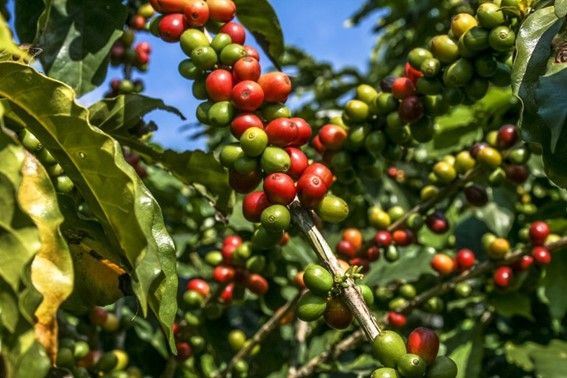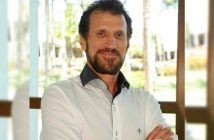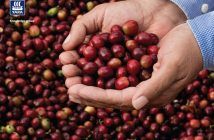One of the actions is to remunerate the coffee producers who preserves water sources and streams within the property
A partnership between the Ministry of Agriculture, Livestock and Supply (Mapa is the acronym in Portuguese), the Inter-American Institute for Cooperation on Agriculture (IICA is the acronym in Portuguese) and the National Coffee Council (CNC is the acronym in Portuguese), is developing and structuring the Café Produtor de Água program .

The initiative aims to intensify the use of practices on coffee farms in Brazil, which contribute to the promotion of sustainable production and the environmental revitalization of the watersheds in which the coffee producing regions are located.
The program foresees the constitution of a specific fund to house resources destined to the Payment for Environmental Services (PSA is the acronym in Portuguese), coming from rural properties dedicated to coffee production. The basic premise is to compensate rural producers for actions that preserve or recover the environment and natural resources available in their properties, generating services and promoting the benefit of society.
The proposal for structuring the program will be prepared by a technical consultant hired through a Technical Cooperation Project between the Ministry of Agriculture, Livestock and Development and IICA. The project will be carried out in cooperation with the CNC, an entity that represents the cooperatives that operate with coffee in Brazil and will have the support of the National Agency for Water and Basic Sanitation (ANA is the acronym in Portuguese) and the Technical Assistance and Rural Extension of the State of Minas Gerais (Emater is the acronym in Portuguese/MG).
“The expectation is that the consultancy will result in the creation of a financial fund covered by various entities, such as banks, cooperatives, water distribution companies and others, aiming to remunerate the producer who is interested in preserving the water sources and streams of his property, in addition to of riparian forests, in order to guarantee water reserves for the future, ensuring that the needs of the irrigation sector and of the cities for the supply of water to the population are met”, highlights the director of the Department of Marketing and Supply of the Ministry of Agriculture, Livestock and Supply, Silvio Farnese.
In the analysis of the CNC’s president, Silas Brasileiro, the positive effects of initiatives like this go far beyond the portress of the rural property. “We see clearly that the benefits arising from the use of good practices go beyond the borders of rural properties, generating benefits for society. It is fair that the costs of producing these benefits are also shared with their users, in proportion to the share of benefits that each one appropriates”.
Concrete actions
A pilot project will be carried out with the Regional Cooperative of Coffee Producers in Guaxupé (Cooxupé is the acronym in Portuguese), located in the south of Minas Gerais, which has more than 16,000 members, 95% of whom are family farmers. At this stage, the technical consultant will manage to get partners and develop an action plan to apply in the crops of producers associated with Cooxupé.
The objective is to create a friendly environment for the establishment of partnerships between entities that operate in the coffee farming segment, in order to implement conservationist practices and managements and improvement of plant cover that contribute to the effective abatement of erosion and sedimentation, resulting in increased infiltration of water into the soil and allowing its storage in the subsoil. As the underground flow is slower than the surface flow, this causes this water to reach the water courses after the rainy season, generating availability to meet the demands in the dry season.
The president of Cooxupé, Carlos Augusto Rodrigues de Melo, highlights that it is essential for the cooperative to participate in initiatives that act to mitigate the effects of the water crisis and climatic events. “Our search for sustainable solutions is constant, to the point that Cooxupé remains increasingly healthy and competitive in the face of challenges. For some years, the climate has had great influence on coffee production and the drought interferes a lot in the production results. Therefore, it is necessary to take actions and reflect about the current moment”, he says.
Among the benefits expected by the initiative are the recovery and conservation of recharge areas and water sources; the improvement of the the quality and increasing the supply of water in hydrographic basins; the conservation of biodiversity; between others.
Brazilian coffee
In addition to the enormous potential to contribute to the environment, through the adequate occupation of rural spaces, along with the use of good practices, coffee farming has great economic and social importance for Brazil.
Brazil holds the first position in the ranking of coffee producing and exporting countries, in addition to being the second largest consumer of this beverage in the world. Brazilian coffee production is responsible for supplying one in every three cups of coffee consumed in the world. The coffee production chain is made up of 308,000 producers – 78% of which are family farmers. The sector generates, annually, from US$ 5 billion to US$ 7 billion in foreign sales, 8.4 million jobs and R$ 25 billion in rural income, in 1,983 Brazilian municipalities.



